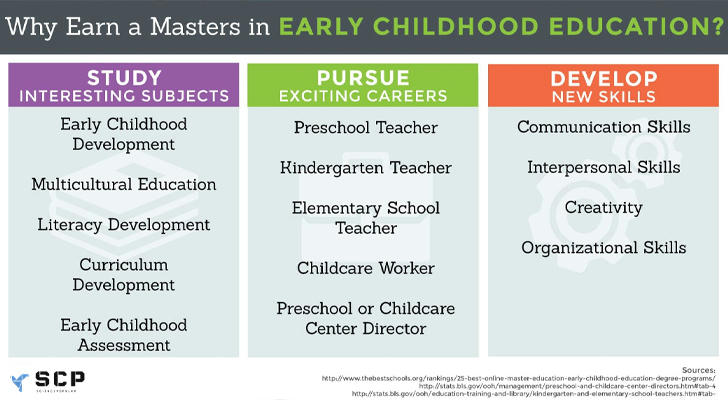Exploring Early Childhood Education Programs: The Foundation for Lifelong Learning

Understanding how young children develop and learn is more important than ever. Early Childhood Education (ECE) programs play a key role in helping children grow socially, emotionally, and mentally. Whether you want to be a preschool teacher, childcare provider, or work in education in other ways, starting with an ECE program is the first step toward a meaningful career. Choosing the right program is about more than just learning the basics; it's about gaining the skills to positively influence children's lives.

1. Key Elements of Early Childhood Education Programs
Understanding Child Development
ECE programs start by teaching students how children grow and learn at different ages. You’ll learn about physical, mental, and emotional development, which helps you create learning activities that are right for each stage.
Creating Effective Learning Plans
Besides learning about child development, ECE programs focus on how to plan and teach effectively. You’ll learn different teaching methods that help keep children interested and make learning fun. This is important for creating a positive learning environment that meets the needs of all children.
Building Relationships with Families and Communities
ECE programs also teach the importance of working closely with families and the community. You’ll learn how to partner with parents and use community resources to support children’s growth. This approach ensures that every child has the support they need to succeed.
2. Unique Features of Early Childhood Education Programs
Focus on Learning Through Play
Play is an essential part of how young children learn. Many ECE programs emphasize learning through play, which helps children develop important skills like problem-solving and creativity. You’ll learn how to create play-based activities that encourage learning in a natural way.
Embracing Diversity
Today’s classrooms are more diverse than ever. ECE programs often include training on how to respect and celebrate different cultures and languages. This helps create a welcoming environment for all children, ensuring they feel understood and valued.
Supporting All Children
Some ECE programs offer training on how to help children with developmental delays or special needs. You’ll learn to spot early signs of challenges and how to support children so they can thrive.
3. Success Story: Emma’s Journey in Early Childhood Education
After finishing her degree in Early Childhood Education, Emma started working as a preschool teacher. Her program had prepared her with a solid understanding of child development and practical experience in planning lessons and working with families. Her dedication quickly made her a trusted teacher, and she eventually moved into a leadership role, helping other teachers and continuing to advocate for high-quality early education. Emma’s story shows how an ECE program can open doors to a successful and rewarding career.
4. How to Choose the Right Early Childhood Education Program
Look at the Curriculum
Make sure the program offers a good mix of learning about child development and practical teaching methods. Choose courses that match your interests, whether that’s learning through play, working with families, or helping children with special needs.
Check Out the Teachers
The quality of your education depends a lot on the teachers. Look into their backgrounds to see if they have experience in early childhood education and whether they can offer the support and knowledge you’ll need.
Get Hands-On Experience
Real-world experience is crucial in early childhood education. Pick a program that gives you chances to work in classrooms or childcare settings, so you can practice what you’ve learned.
Look for Career Support
Good career support can help you find a job after graduation. Choose a program that offers help with job searches, networking, and advice on further education.

5. Conclusion
Starting a career in Early Childhood Education is not just about learning theories; it's about making a real difference in children's lives. By choosing the right program and gaining both knowledge and practical skills, you can set the stage for a fulfilling career. Whether you want to work directly with children or take on a leadership role, an ECE program is your first step toward making a positive impact on the future.
